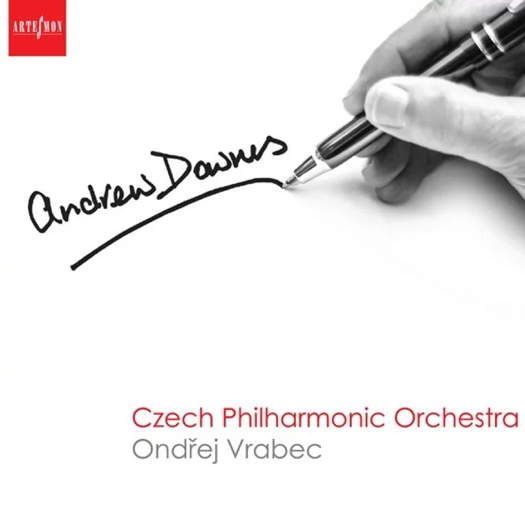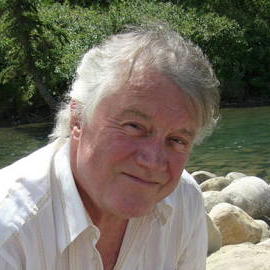- Wilhelm Killmayer
- Ruth Hesse
- Bryan Drake
- Cala Records Ltd
- Sibelius: Luonnotar
- Mervyn Burtch
- Eric Nowlin
- Brandon Patrick George
Welcome Back, Puritani
GIUSEPPE PENNISI was in the audience, in Rome, for Bellini's last great masterpiece
On 19 April 2022, after more than thirty years, what many consider Vincenzo Bellini's masterpiece returned to Rome: I puritani. I was in the audience. This new production was scheduled for last season. Given the COVID19 lockdown, it was offered in concert version and streaming: the cast is almost identical. The only change is the tenor - John Osborn in the role that, in the concert version, was sung by Lawrence Brownlee. I reviewed the concert version on 26 January 2021.
I puritani was Bellini's last great masterpiece, aimed at the future from both a musical and a political point of view. The libretto was written by Count Carlo Pepoli, an exile who considered himself a great poet; the text proves that he was not. Yet, he was a great patriot. It does not derive – as is often written – from Walter Scott's novel The Puritans of Scotland but from a vaudeville, a light comedy with music, then successful, Têtes rondes et cavaliers by Ancelot and Boniface: little trace has remained in the stories of literature and theatre. Two themes are intertwined: the war between Cromwell's Puritans and the Stuarts' armies and a sentimental misunderstanding which in the opera leads to a great 'scene of madness'; in the vaudeville only to moments that would like to be comical. It was necessary to be true patriots to draw from this mess a generous hymn to the Fatherland and freedom.
As can be seen from the composer's correspondence with his uncle Francesco Ferlito, Bellini put much of his own into improving the libretto. Rossini also intervened with advice (which proved to be very useful) on the dramaturgy of the work. The composer asked for and obtained a fabulous vocal cast: in the main roles, Giulia Grisi, Giovanni Battista Rubini, Antonio Tamburini, Luigi Lablache and Maria Amigo. 24 January 1835 was an absolute success, despite the fact that three musical numbers had to be cut due to the duration of the performance: more than three hours, and two intermissions.
In Rome (as in Palermo in 2018), the complete critical edition was offered, rarely performed (although long available in some recordings): a richer orchestration is recovered in the cabalette, and all the 'traditional cuts' of current productions are reopened. It is about twenty minutes of music that, on the one hand, proves that in Bellini the orchestra was not primarily support for belcanto (as in Norma and even more so in Il pirata). Secondly, the complete edition contains a psychological deepening (especially of the character of Riccardo) that often seems to be lacking.
The plot of I puritani takes place in England around 1650, at the time of the civil war between the followers of Cromwell, and those of the Stuarts, loyal to King Charles I. The arduous and contrasted passion between Elvira, daughter of the general of the Puritans, and Arturo, from a lineage of Knights of the Stuarts but now siding with the Puritans, is hindered by the jealousy of his antagonist Riccardo. This leads the young woman to madness: she is immersed in the memories of her happy past, until the much desired return of the beloved who, condemned to death, will be pardoned by a general amnesty at the last moment.
The rather unlikely libretto poses difficulties in stage versions. To overcome them, for example, a 2008 production signed by Pier'Alli (and brought to Cagliari, Bologna, Palermo, Savonlinna and Tokyo, as well as to Palermo in 2018) placed the story in an abstract and timeless context. A famous production with scenes and costumes by Giorgio De Chirico, revived in Rome in 1990, represented the conflict between Cromwell and the Stuarts as a card game: one faction was the 'paintings' and the other the 'hearts' – as if to underline the irrelevance of Count Pepoli's text.
In 2012 many opera lovers and music critics were among the skeptical and the surprised at the news that a group of 'traditional' theatres (with infinitely less resources than those of the twelve Italian national opera foundations) had in mind to stage the work. The 'Lombard circuit' - Cremona, Como, Brescia and Pavia - and the Teatro Pergolesi of Jesi realized a similar adventure. They entrusted the stage direction, the scenes and the costumes to a team coming from experimental drama theatre - Carmelo Rifici, Guido Buganza and Margherita Baldoni - and the musical direction and voices to largely young and little known professionals. The staging was very simple: a hall of a snowy castle with a second floor / mezzanine practicable. The customs of the 'puritans' were austere, those of the 'Catholics' fit to the Kingdom of the luxurious Stuarts. A few decades ago, just conducting I puritani, the then young Riccardo Muti demosrated how Bellini's last opera not only has a very delicate introduction and the rightly famous polonaise. It is also an embroidery of atmospheres entrusted to orchestral sonority in order to make the libretto plausible (at least as much as the singing) in an edition of which there is a magnificent CD.
Is this the fruit of the ingenuity of the poet Conte Pepoli or the art of Bellini? Bellini died almost suddenly on 23 September 1835, nine months after the debut of I puritani, in the Puteaux villa of his friend Samuel Lewis. He had been suffering from various types of ailments for a few weeks. It is not known whether he was working on anything new. He was very young. One can only make assumptions about his possible role in the Risorgimento - the Italian national unity movement.
'When we started rehearsals', says stage director Andrea De Rosa, 'almost simultaneously the invasion of Ukraine began. I felt the need to bring something of this great tragedy into an opera in which war exists even if, in the libretto, it is in the background. I returned it through the obsession that Elvira relives every time you hear the horns in the orchestra, the horns of war precisely, she is frightened, she stops her ears, as certainly happens when the anti-aircraft sirens sound in places of conflict. In the foreground, there is instead the great trauma of the protagonist who thinks she was abandoned by her lover on her wedding day. From here, the central episode of the work emerges: madness. Elvira completely loses sight of reality, she no longer sees and no longer recognizes what is in front of her. I interpreted and staged this madness through a form of blindness of the protagonist.'
These intentions are not fully reflected in the actual stage direction since acting is lacking – strange because De Rosa's experience is above all in drama theatre; probably given only a year ago the same work was presented in concert version, few stage rehearsals were made; this aspect can be taken care of in the replicas. A great idea in the first part: Elvira's wedding veil becomes the link between the various elements. Nicolas Bovey's scenes are simple but efficient. The costumes by Mariano Tufaro are timeless. The lighting by Pasquale Mari was good, especially in the second part.
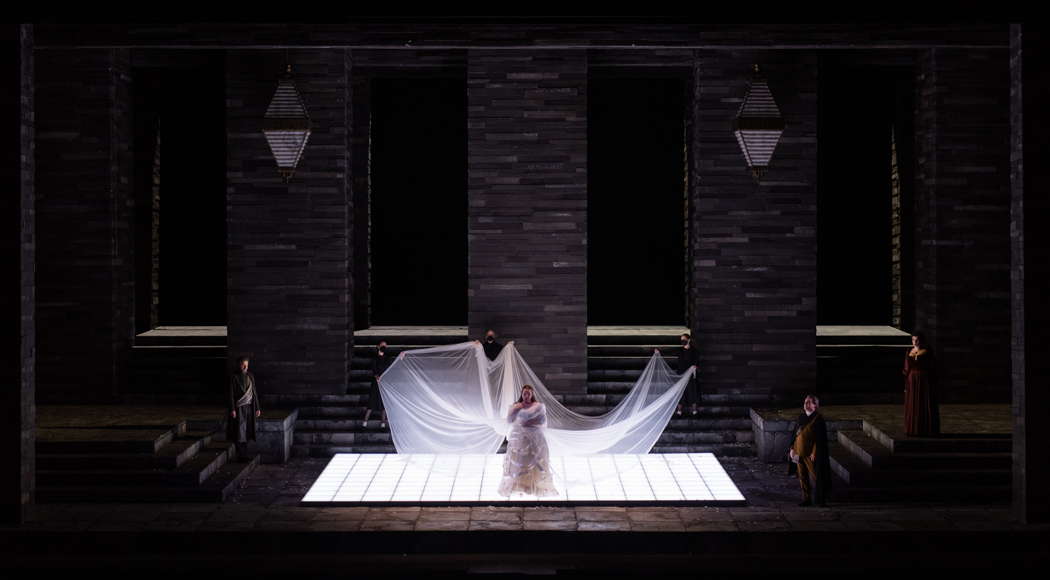
A scene from the Teatro dell'Opera di Roma production of Bellini's I puritani. Photo © 2022 Fabrizio Sansoni
Roberto Abbado was back on the podium in front of the orchestra of the Teatro dell'Opera. To some listeners, Abbado seemed to conduct a little slowly. It has been so if compared with some famous recorded editions, such as that of Richard Bonynge with the ensembles of the Teatro Massimo Bellini in Catania and Riccardo Muti with those of the Maggio Musicale Fiorentino. However, the orchestration is different from that conducted by Bonynge and Muti. The critical and integral edition requires digging more into the orchestral flows to make the romantic premonitions heard, for example, in the storm with which the third act begins, as well as at the various moments in which the polonaise, with different slants, tilts and colours, is the work's main theme. The excellent orchestra of the Teatro dell'Opera di Roma fully supports him: the wind and brass stand out.
In the role of Elvira Valton was the English-born Australian soprano Jessica Pratt. I have been following her career since she made her debut at the Rossini Opera Festival in 2011 in Adelaide Regina di Borgogna, surprising the audience with her bold vocality. I listened to her in I puritani in the production of OperaLombardia in 2012 and in that of the Maggio Fiorentino in 2015. She knows the role very well and entered the part at the very moment at which she was on stage. She has now taken the place of Dame Joan Sutherland as the ideal interpreter of I puritani: she has shown great virtuosity since the Act I cavatina and has been poignant and exciting in the long and impervious Act III duet.
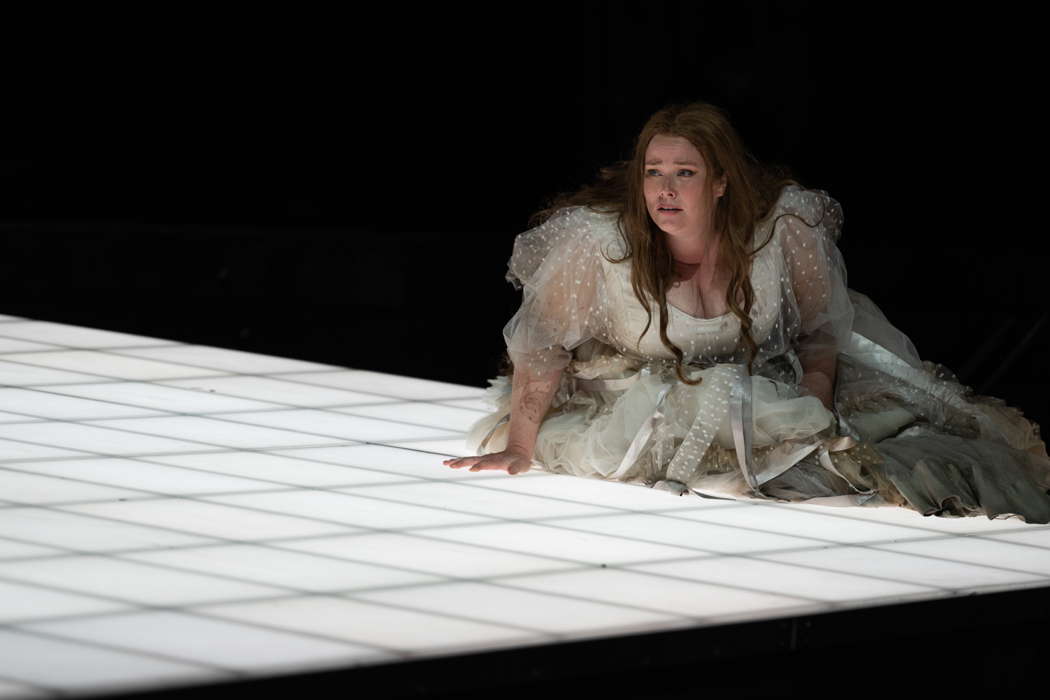
Jessica Pratt as Elvira Valton in the Teatro dell'Opera di Roma production of Bellini's I puritani. Photo © 2022 Fabrizio Sansoni
In the role of Lord Arturo Talbo was the American tenor John Osborn, who was excellent in the title role of Benvenuto Cellini by Hector Berlioz in Rome a few years ago. I remember him very young at the Rossini Opera Festival as a reckless belcanto tenor. Since then about twenty years have passed but his voice is intact and his treble passionate (in the Act I cavatina and the Act III duet). He also delved into the legato and flattened notes. He sported a beautiful B natural.
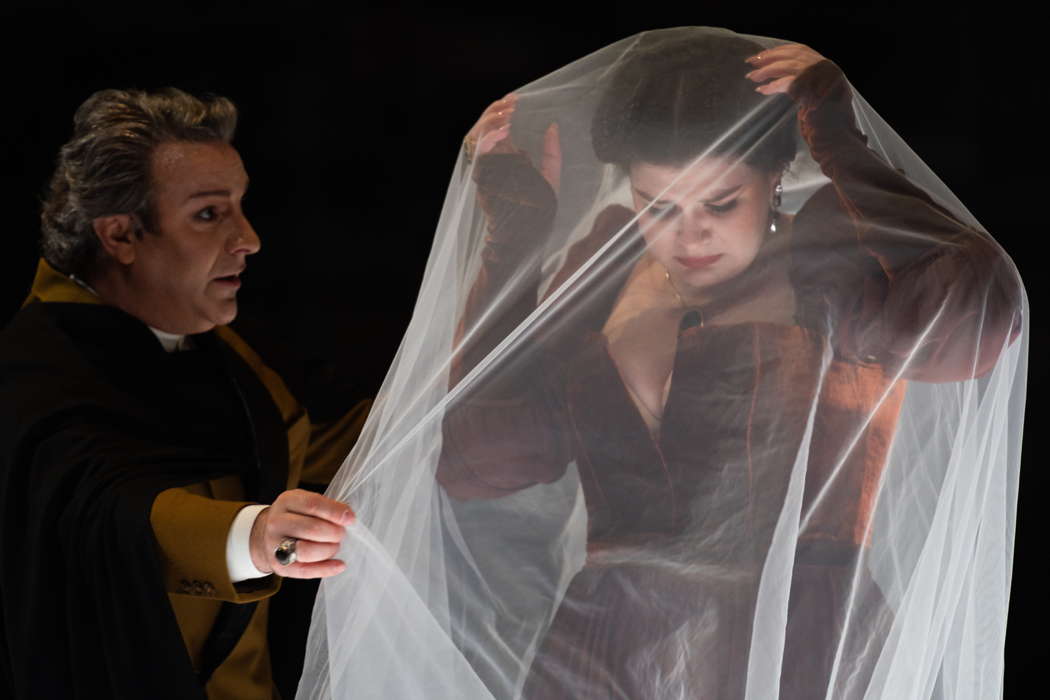
John Osborn as Arturo and Irene Savignano as Enrichetta di Francia in the Teatro dell'Opera di Roma production of Bellini's I puritani. Photo © 2022 Fabrizio Sansoni
Sir Riccardo Forth is played by Franco Vassallo and Sir Giorgio Valton by Nicola Ulivieri. Vassallo proves once again to be a great baritone. I have known Ulivieri since 1996 when he made his debut at the Teatro Lirico Sperimentale in Spoleto in Mozart's Don Giovanni. He is an excellent bass baritone. I would have preferred a darker Sir Giorgio but Ulivieri knows how to descend to a very low register. The duet with which they closed Act II was compelling. Lord Gualtiero Valton was Roberto Lorenzi. Two young talents from the Teatro dell'Opera di Roma 'Fabbrica' Young Artist Program project completed the cast: Rodrigo Ortiz and Irene Savignano, respectively, in the roles of Sir Bruno Roberton and Enrichetta di Francia. The chorus of the Teatro dell'Opera, prepared by Roberto Gabbiani, confirmed its high level.
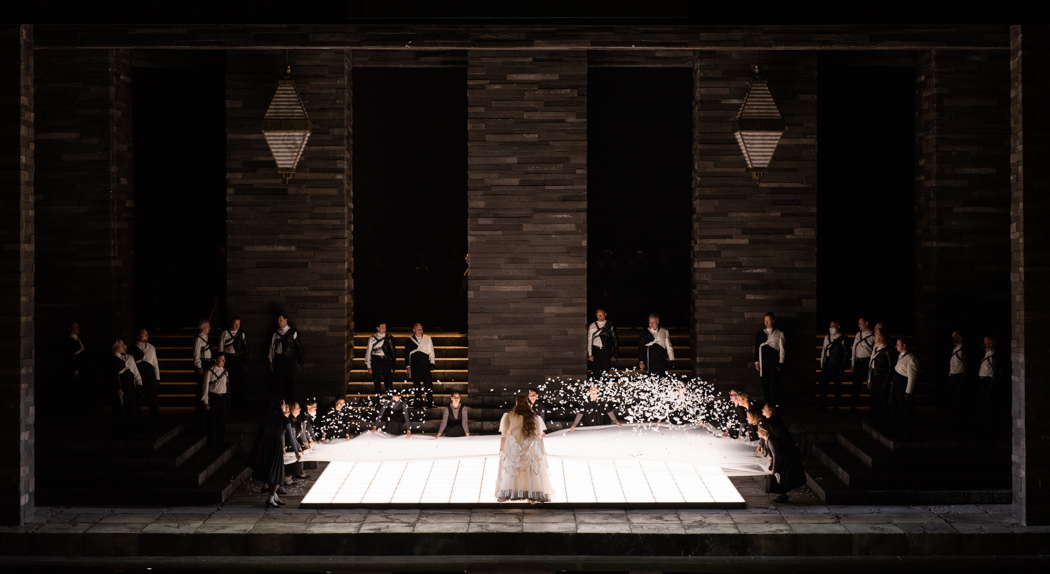
A scene from the Teatro dell'Opera di Roma production of Bellini's I puritani. Photo © 2022 Fabrizio Sansoni
There was much open stage applause after the main musical numbers, and there were accolades at the end.
Copyright © 21 April 2022
Giuseppe Pennisi,
Rome, Italy



